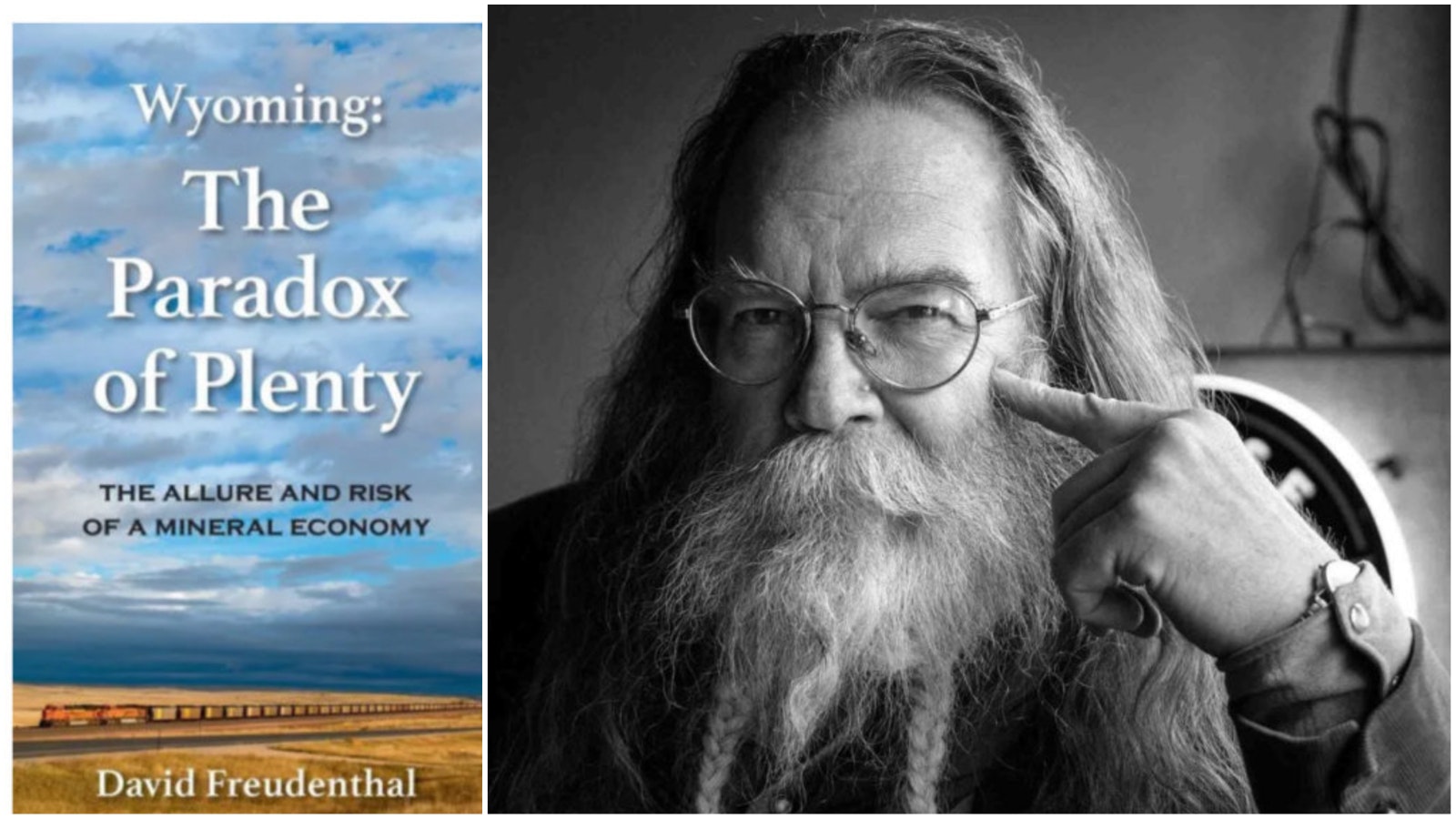Former Wyoming governor Dave Freudenthal has always been a cogitative cuss, and his new book “The Paradox of Plenty” applies his critical thinking to the economic life of Wyoming during her history. Pardon the mixed metaphors, but Freudenthal eloquently describes the kicking-the-can-down-the-road, all-eggs-in-one-basket corner into which we in Wyoming have painted ourselves.
The title of the book derives from a system of examining societies that are reliant upon natural resource wealth. The quick and easy money provided by resource extraction enriches those societies for a finite time, but builds within them a dangerous dependence on whatever commodity is paying the bills.
This dependence can, and has throughout history devolved into a near-enslavement of populations by the very resource that is putting food on their table. Picture Nantucket during the heyday of whale oil, or the Dutch economy neglecting everything but tulip bulbs.
Or here in Wyoming, Freudenthal adds, holding his book up a like mirror for us to see ourselves today.
Economic myopia results, with a society unwilling to see alternatives because they’re hell-bent on getting the last diamond out of the mine or the last redwood out of the forest. The enslavement becomes not only economic but, more disturbingly, intellectual.
Freudenthal has organized “The Paradox of Plenty” as a chronological stroll through the economic history of Wyoming, emphasizing critical inflection points and political decisions that have brought us to where we are today. As examined by a former governor of the first order, our economic history is one, for the most part, of coming to a fork in the road and not taking it.
The political heavyweights making those decisions are brought to life within the pages, and the rationale for their choices and the political pressures that influenced them, are presented and parsed in clear and minimally lawyerly language. Freudenthal invites the layman to take a big step back, look at the entirety of our history as a state, and ask the important question, “How the hell did we get here?”
Familiar themes of economic diversification (or lack thereof), market whipsaw and the brain-drain of youth from the 307 pop up throughout the book, and Freudenthal folds them seamlessly into the narrative. Nobody is unaware of this situation, nor are we reluctant to moan about it. But damn little is ever done about it, and Dave gives us strong hints why not.
Something of a policy wonk himself, the author serves up plenty of meat for fellow wonks to chew. “The Paradox of Plenty” is generously annotated and indexed with a bibliography that makes wonks like me salivate. The book can be read as a stand-alone snapshot, or used as a cornerstone for deeper research into the topic of sovereign dependence on a single industry.
Sprinkled throughout “The Paradox of Plenty” is Freudenthal’s unique sense of humor, which is dry as Adobe Town and sharp as sourdough. It’s particularly evident when he exposes the bipolar nature of Wyoming, as we cuss government and want to shrink it like a wool shirt in hot water, and at the same time, we are loathe to forsake the benefits that government provides to its citizenry.
When I worked in Governor Sullivan’s office, Dave Freudenthal was our Rip. If a staffer was fixin’ to do something to embarrass the governor, he would step in. Dave wouldn’t take you to the train station, but he would take you to lunch, and you’d always step away from the table with a bellyful of new ways to look at things.
“The Paradox of Plenty” is Dave Freudenthal taking us all to lunch. So, friends and neighbors, mind your table manners and pay close attention.
Freudenthal begins the last chapter with a quote from George Will: “The future’s vital, and only, constituency is the conscience of the present.” All written histories are unfinished, that is axiomatic. And with “The Paradox of Plenty”, our former governor places the responsibility for writing the next chapter squarely on us. Since we frequently shudder at the thought of outsiders pushing us around, we should want it no other way.





